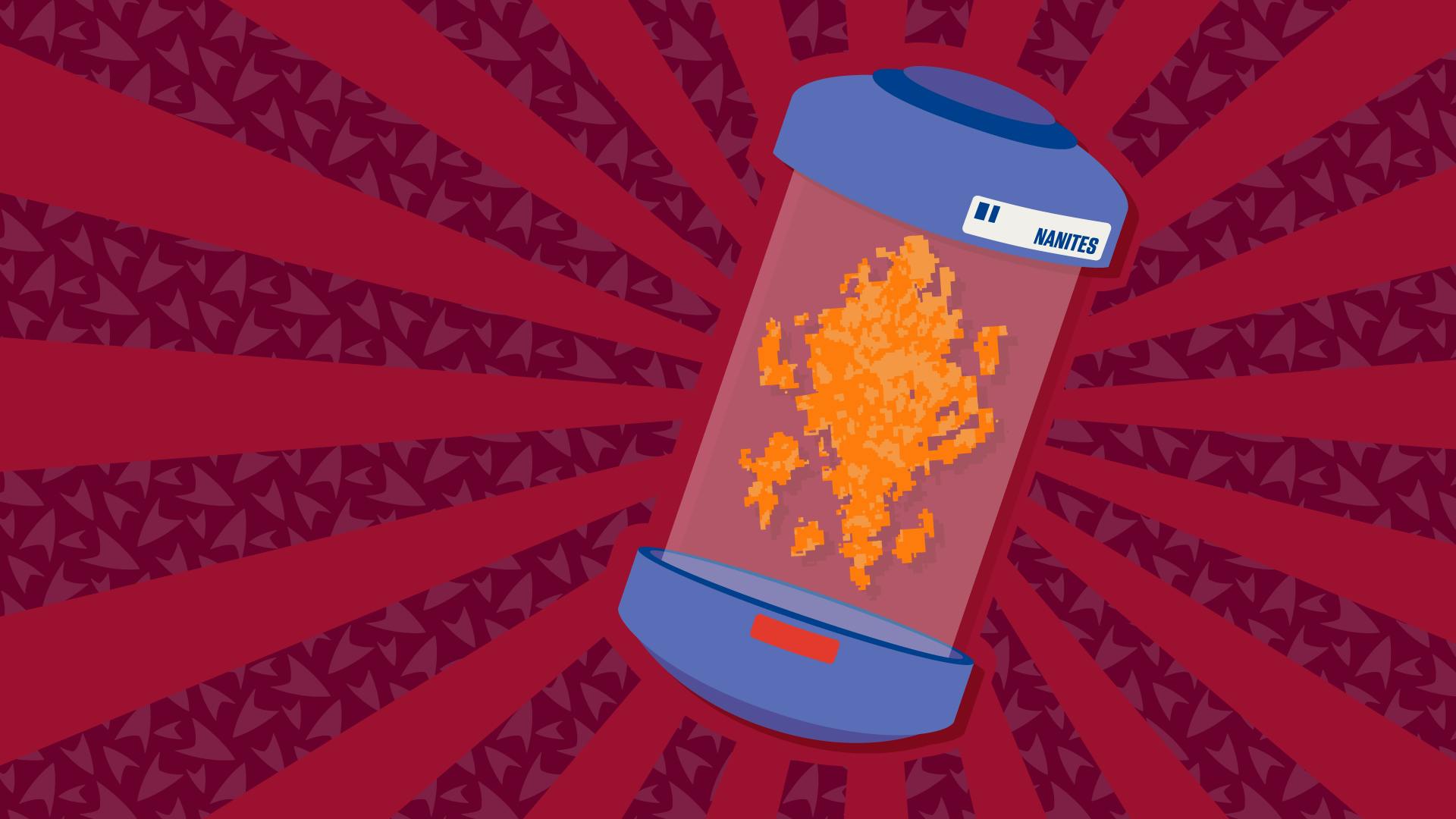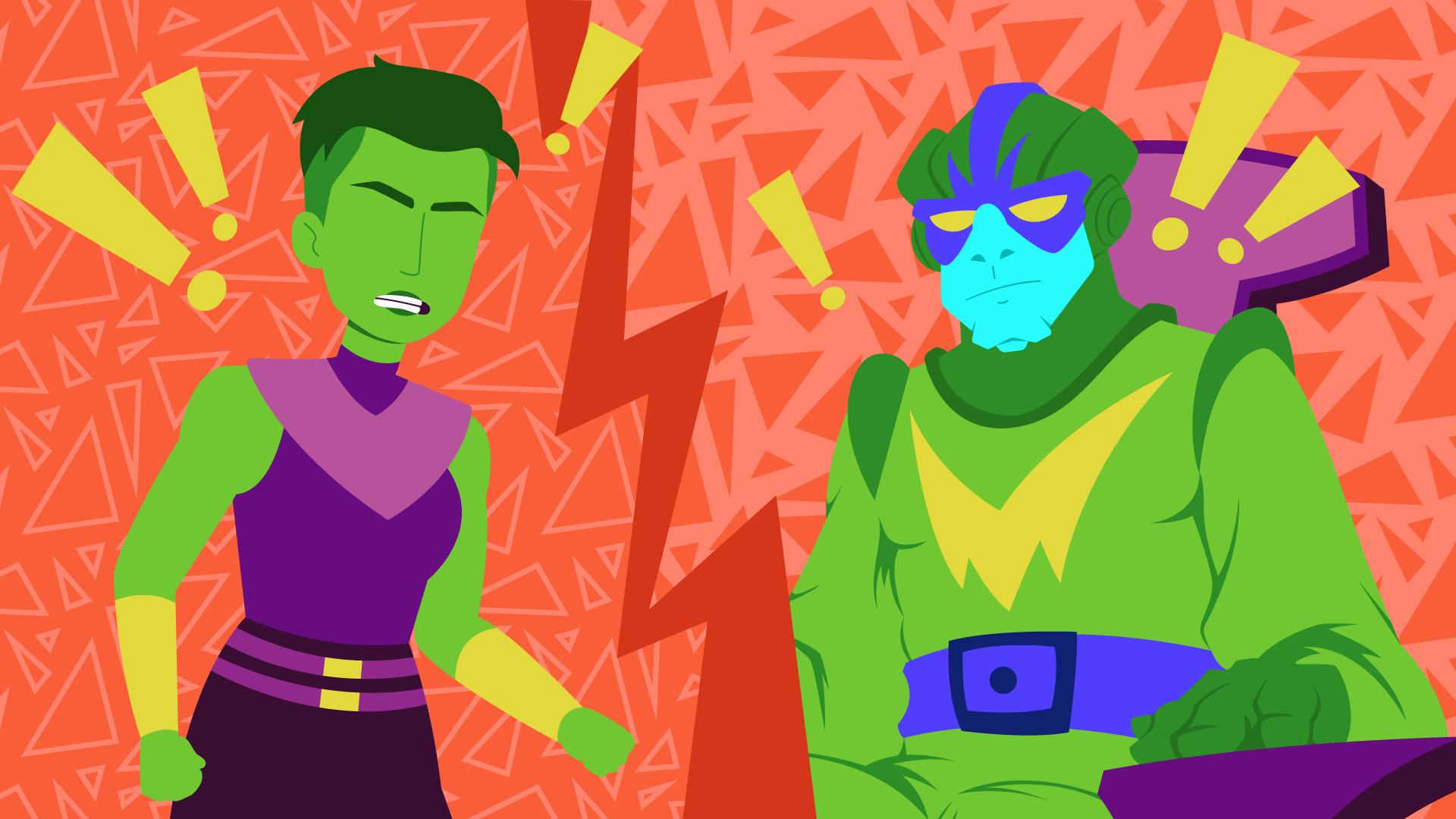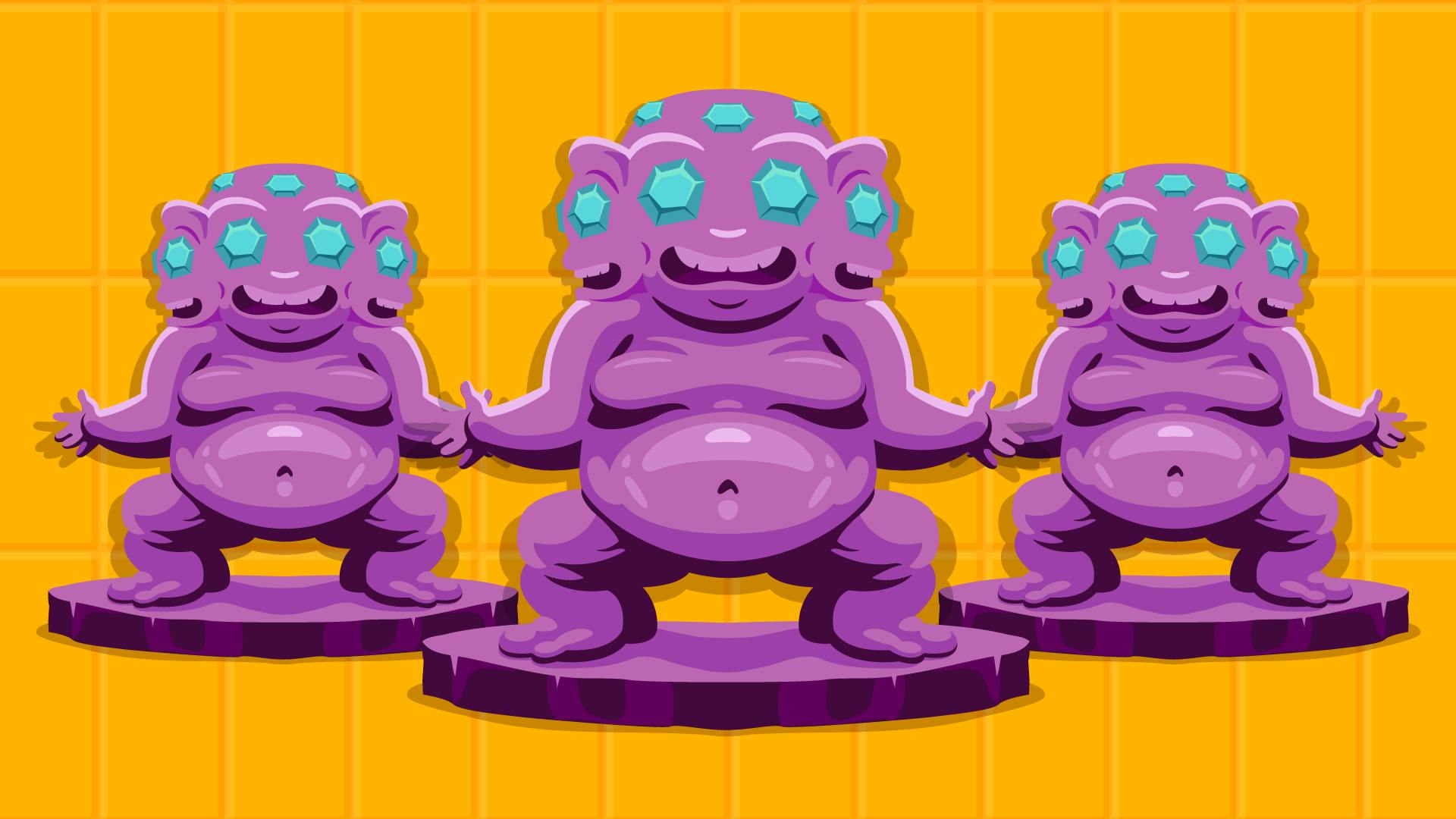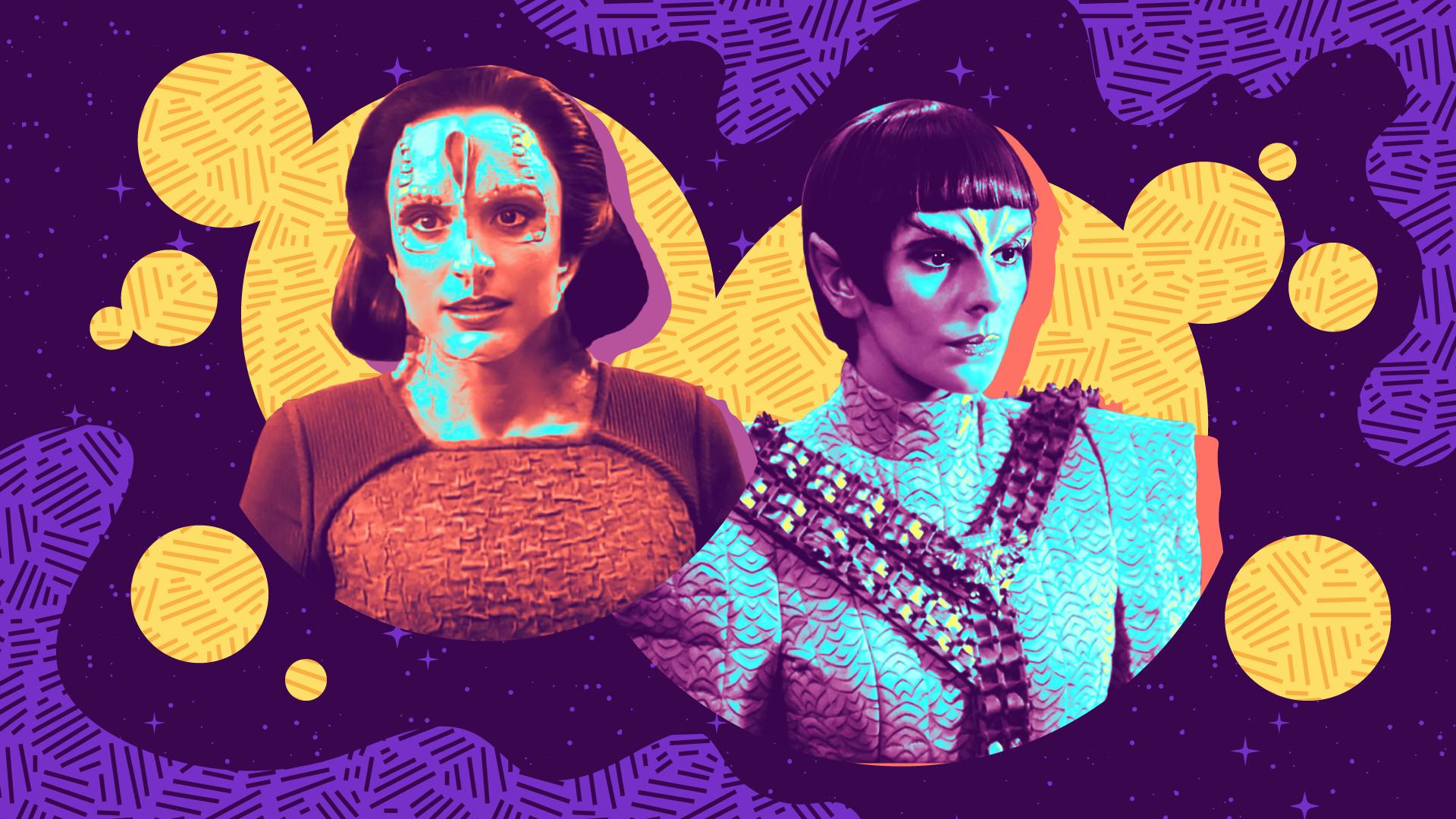Published Sep 28, 2023
Encounter at Farpoint: An Oral History
On the anniversary of Star Trek: The Next Generation's debut, we revisit its premiere episode.
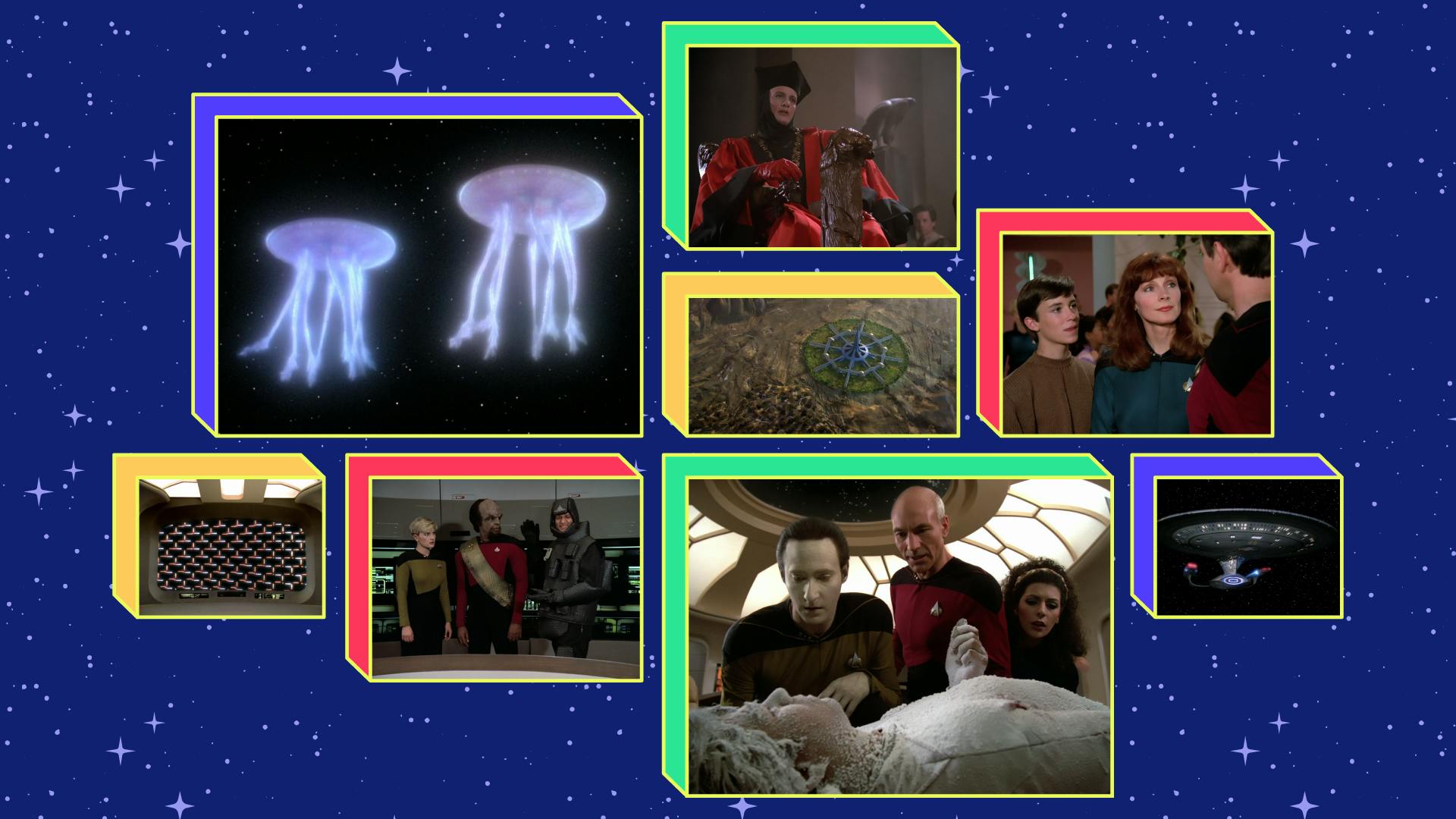
StarTrek.com
September 28, 1987, remains one of the most-important days ever in Star Trek history. It was that evening that the two-hour pilot "Encounter at Farpoint" kicked off Star Trek: The Next Generation.
The series did the impossible — capturing lightning in a bottle — and set the stage for decades of additional Star Trek entertainment, including Deep Space Nine, Voyager, Enterprise, the TNG features and the Kelvin films, to Discovery, Picard, Lower Decks, Prodigy, and Strange New Worlds, as well as video games and more, including this site.
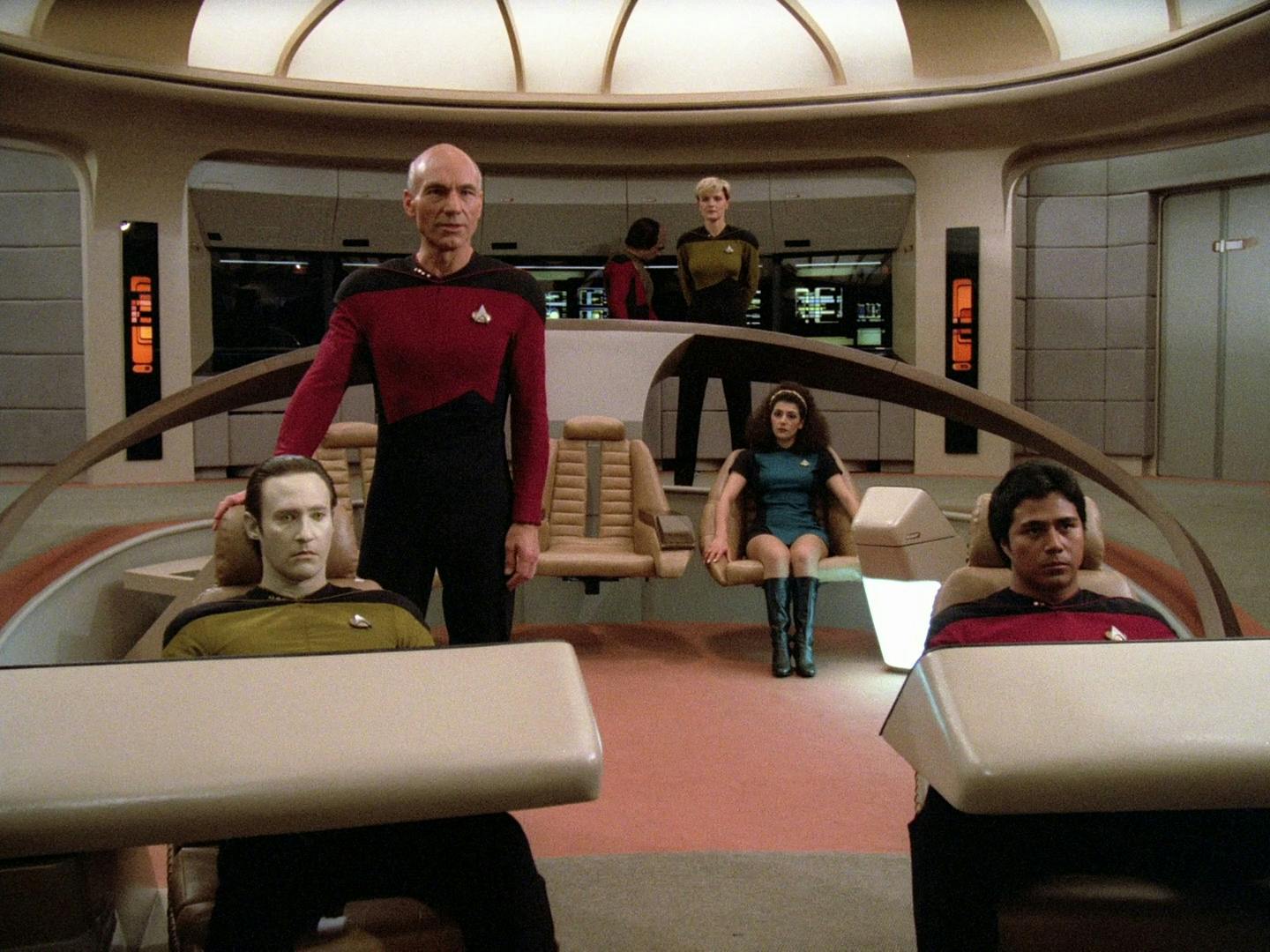
"Encounter at Farpoint"
StarTrek.com
Speaking specifically of "Encounter at Farpoint," it was initally meant to be a one-hour episode, but morphed into a two-hour affair. In fact, the Q storyline was added late in the game. Of course, it established the template for what became a pivotal character that appeared throughout the series and returned again to close out the TNG saga.
Gene Roddenberry was back in the saddle, surrounded by such familiar The Original Series figures as Dorothy Fontana and David Gerrold, as well as newcomer Rick Berman, who'd take on an increasingly larger role on TNG, and who, following Roddenberry's death, guided the franchise for years to come. DeForest Kelley made a terrific, generations-spanning, torch-passing cameo as McCoy.
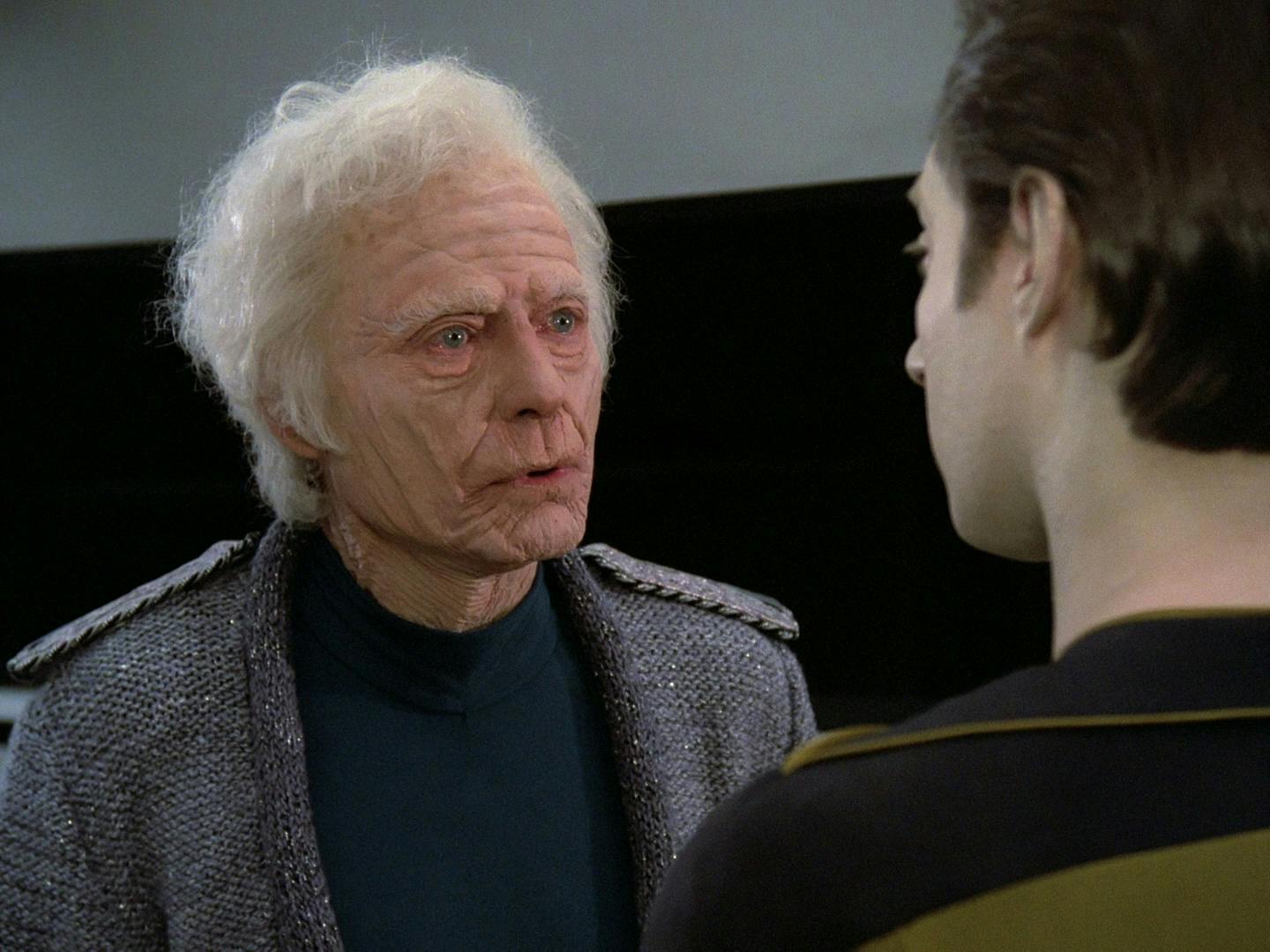
"Encounter at Farpoint"
StarTrek.com
To celebrate the anniversary of "Encounter at Farpoint," StarTrek.com has assembled some comments, via past exclusive and new interviews, from the on-camera and behind-the-scenes talent involved in making the pilot a reality.
DOROTHY FONTANA (Co-writer): I was interested when Roddenberry called me to say Paramount was interested in doing a new Star Trek series as an hour show. That was in late 1986. Gene asked me immediately to read all the materials that had been generated on it so far — by David Gerrold, Robert Justman and by him. I was intrigued and drawn into the process by Gene asking me to create a story that would be the pilot for the new series.
That bobbled back and forth between being a two-hour or a one-hour with an additional hour of "Previously on STAR TREK" material. I wound up writing an hour and a half script and Roddenberry rewrote it to include all the "Q" material. My story was about Farpoint and the mystery surrounding it.
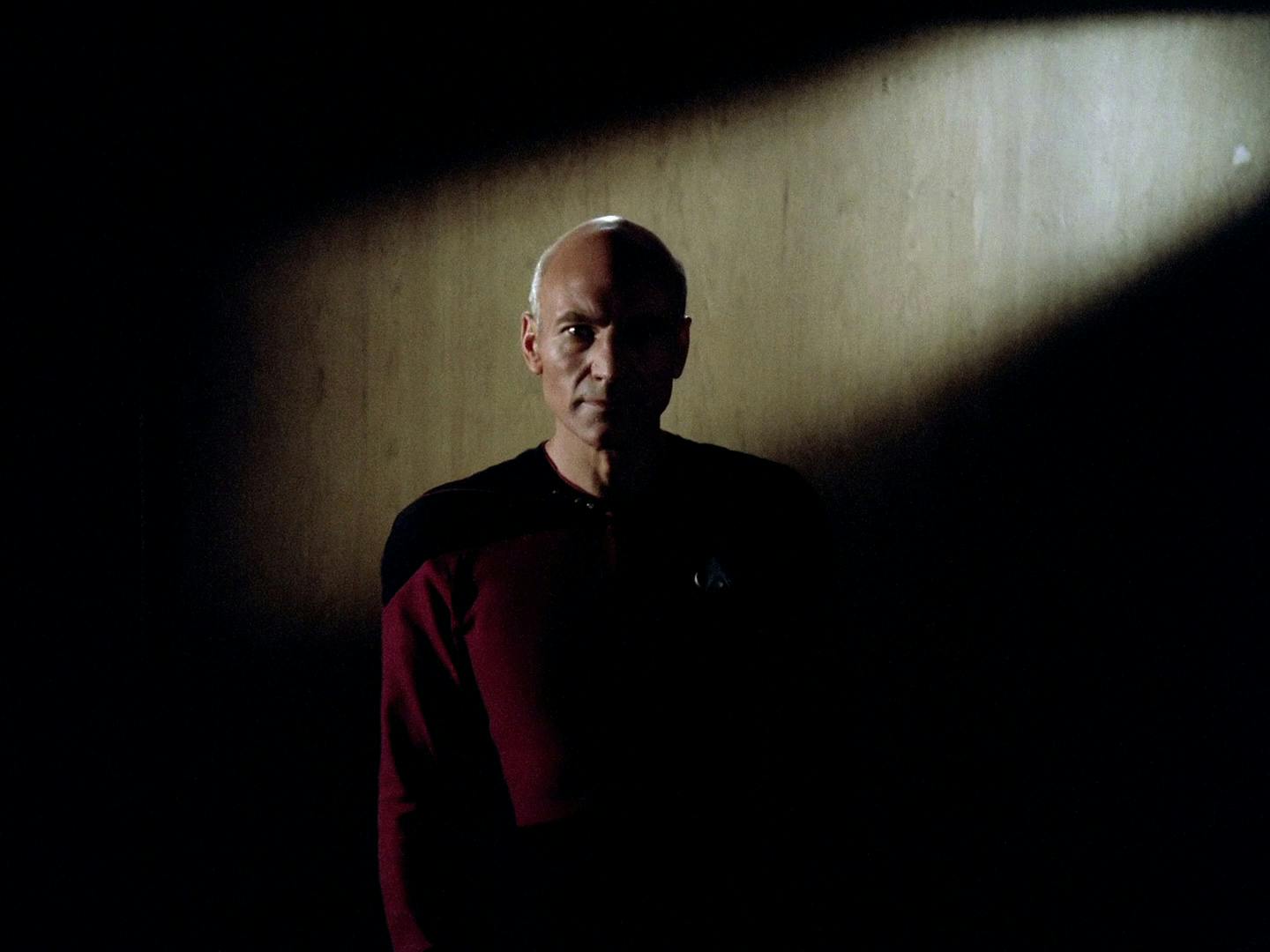
"Encounter at Farpoint"
StarTrek.com
PATRICK STEWART (Captain Jean-Luc Picard): I had dinner with Gene Roddenberry at the Bel Air Country Club the weekend before we began rehearsal for the pilot. I’d read the pilot episode, “Encounter at Farpoint,” by then and my reason for meeting with Gene was to take from him his counsel and his guidelines as to how I should develop this character. All Gene said to me was, “You know the Horatio Hornblower stories?” And I said, “I did, because I read them as a teenager and enjoyed them.” He said, “I am sending some copies around to you. Read them. That’s all you need to know.” (Laughs).
Well, I did read one of the Horatio Hornblower stories and I think I got the idea of what Gene was after. In the pilot episode and throughout the first season, I was following that path of a rather heroic, romantic leading officer who was on a voyage of discovery. Then, working with the writers, talking to the writers, different aspects of his character, the rather more complex and at times ambivalent aspects of his character began to emerge.
BRENT SPINER (DATA): I don't remember much about the day, actually, other than how kind and welcoming De (Kelley) was.
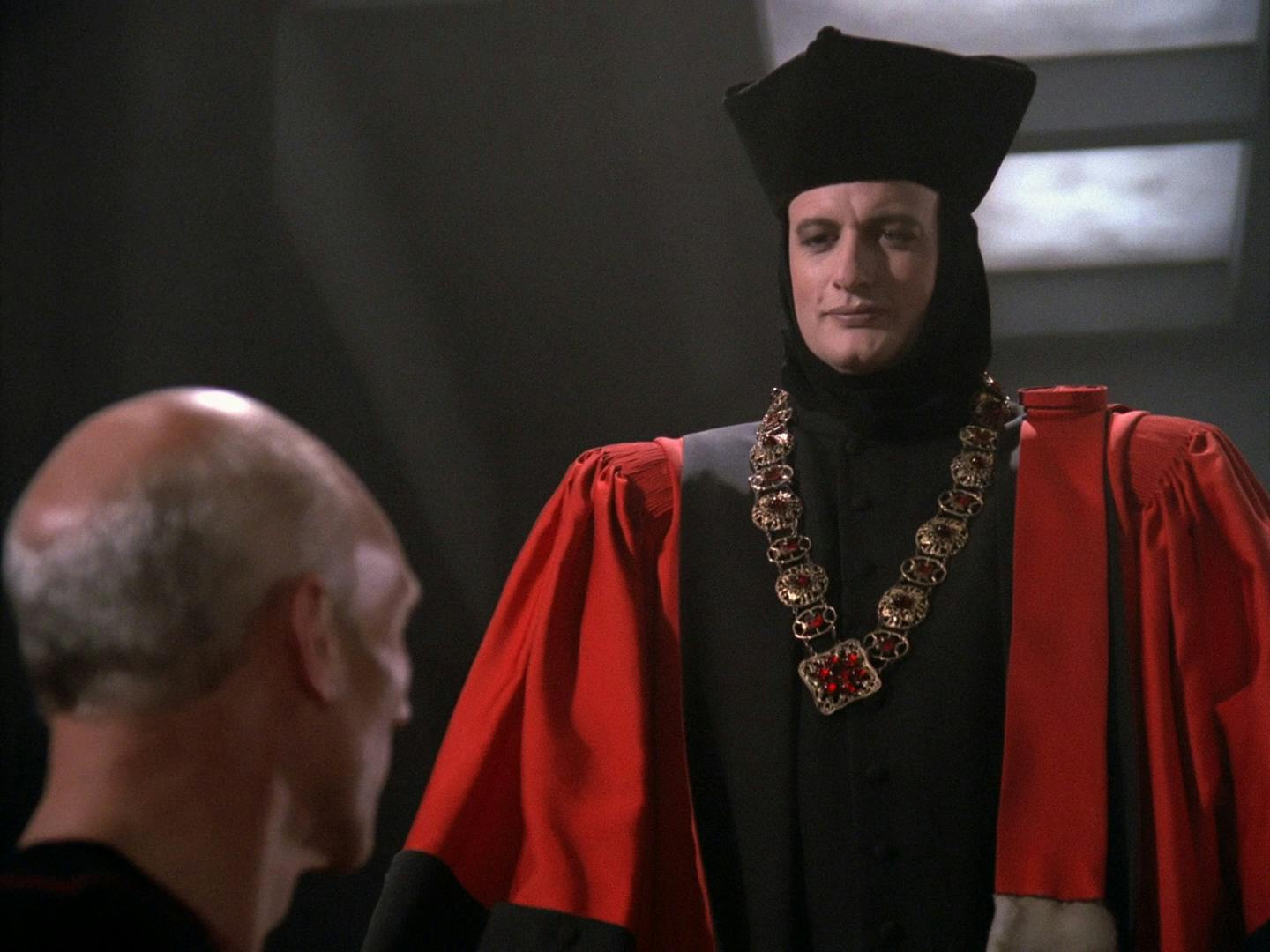
"Encounter at Farpoint"
StarTrek.com
JOHN De LANCIE (Q): Well, there's no question about the fact that, hindsight, it shows me a lot that I just didn't- Who would've thought, quite literally, who would've thought I was hired to do two weeks on Star Trek, that was it. Actually, I was hired to do a month on Star Trek, but I was working on another show and they put everything into two weeks for me.
Gene Roddenberry, at the beginning of filming, a couple of days after seeing, I guess, that he liked what I was doing because I took it as a compliment, he came up behind me and he said, "You have no idea what you've gotten yourself into." He whispered in my ear and I said, "Oh, Gene, what do you mean?" And he said, "You will find out," and I have been finding out now for 35 years. I have been finding it.
RICK BERMAN (Executive Producer): What I remember most was that Gene did not want a two-hour pilot. The studio insisted, and he finally agreed. The Q story was integrated, and as we all know, created an unforgettable character. Other than that, my strongest memory was watching the new cast we had just assembled, and with fingers crossed, hoping they'd pull it off — which they did with flying colors.
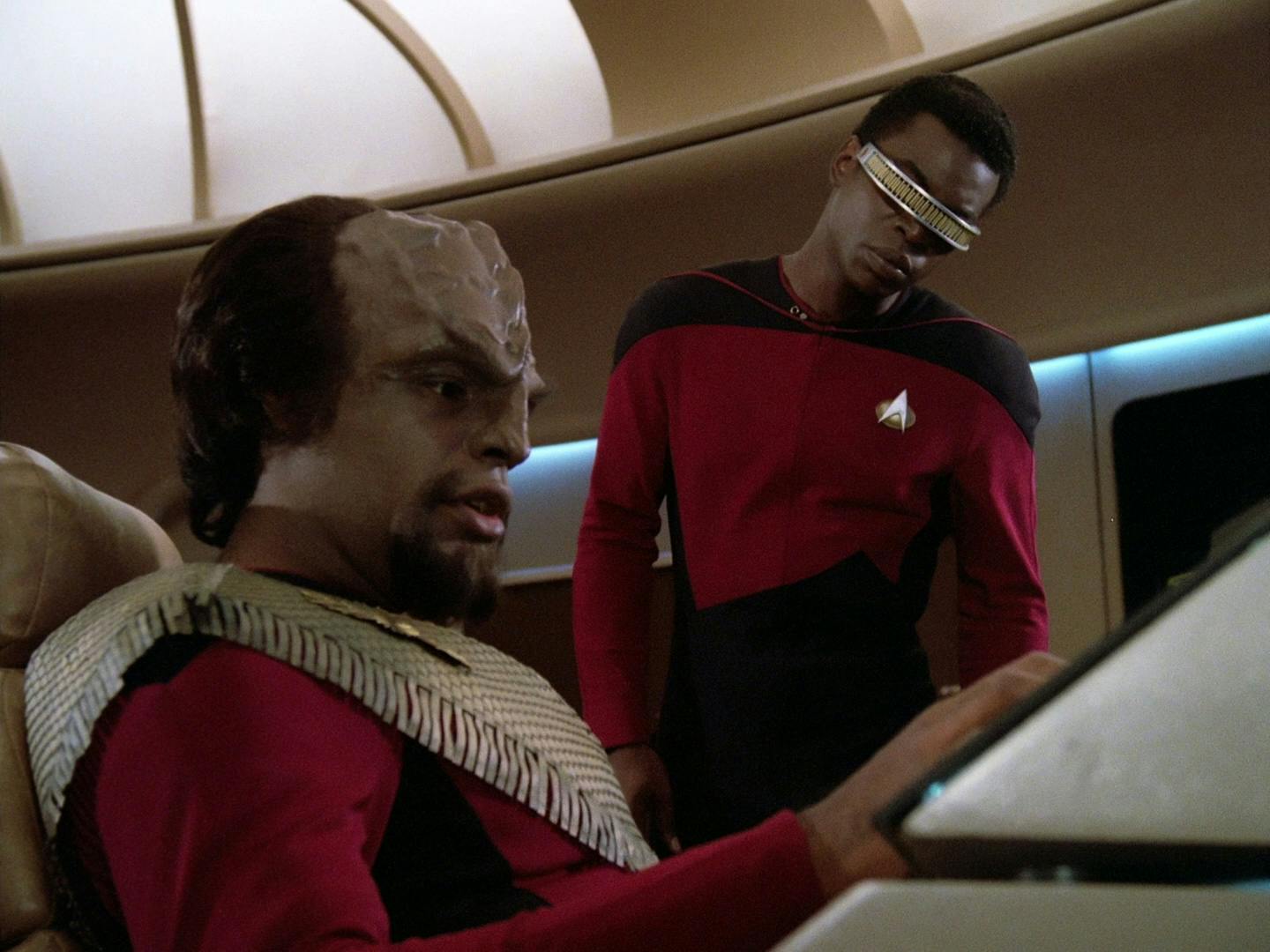
"Encounter at Farpoint"
StarTrek.com
MICHAEL DORN (Worf): After my last audition — and I had three — they told all of us, me and two other actors, "Thank you We'll be in touch.” And as I was leaving, the casting assistant asked me to stay behind because they had a VHS of my work that they wanted to return. As I was waiting outside, the director (Corey Allen) came outside and said, "It's going to be nice working with you." That was how I found out [I'd won the role of Worf and would be starting work ASAP on "Encounter at Farpoint"].
I wasn't told who the character was or any back story. They got me into makeup and I was on the set the next week. Only later did I have a small meeting with Gene and I asked him what he wanted from the character. He said, "Make it your own. Don't listen to or go by anything you've heard in the past," which was smart on his part. When an actor has the freedom to create his own character's backstory and personality, he has an "investment" in the character and so he is more committed to making it great.
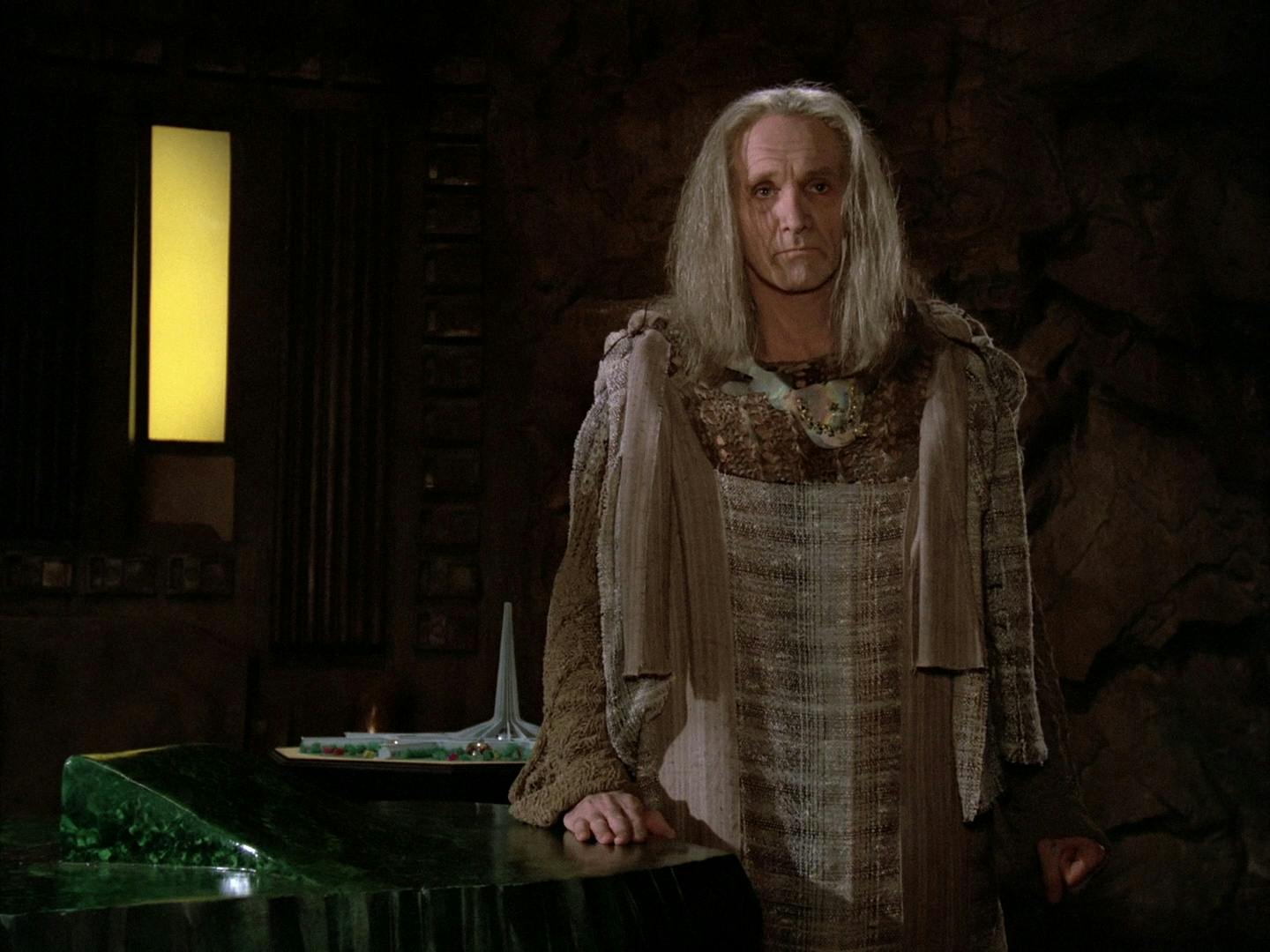
"Encounter at Farpoint"
StarTrek.com
MICHAEL BELL (Groppler Zorn): I'd met Corey Allen, the director, early in my career. He was teaching drama and I became a pupil. I’d just come to Hollywood and was starstruck, of course, and studying with him was a no-brainer. Corey eventually became a successful director and he cast me in a couple of theater projects he directed. We struck up a firm friendship. He was one of the few people in Hollywood who was truly loyal to the talent he worked with, and always remembered to call them in for projects if the role was right.
He called me in to read for Star Trek, for Q. I read for him and Gene Roddenberry, who reminded me I worked for him before in the Then Came Bronson pilot. After I finished reading, they both asked me to read for Groppler. The rest is Trek history, at least for me. The pilot was predicated on the success of the original, and that was uppermost in my mind. The role of Groppler was carefully etched — not patently evil, but certainly unprincipled where his general comfort was concerned, and not unlike many past and present politicians. I loved playing against that and Corey allowed the room to discover. However, even if the character was one-dimensional, I’d never have passed. Supporting actors, unlike major stars, do not have the luxury of picking and choosing.
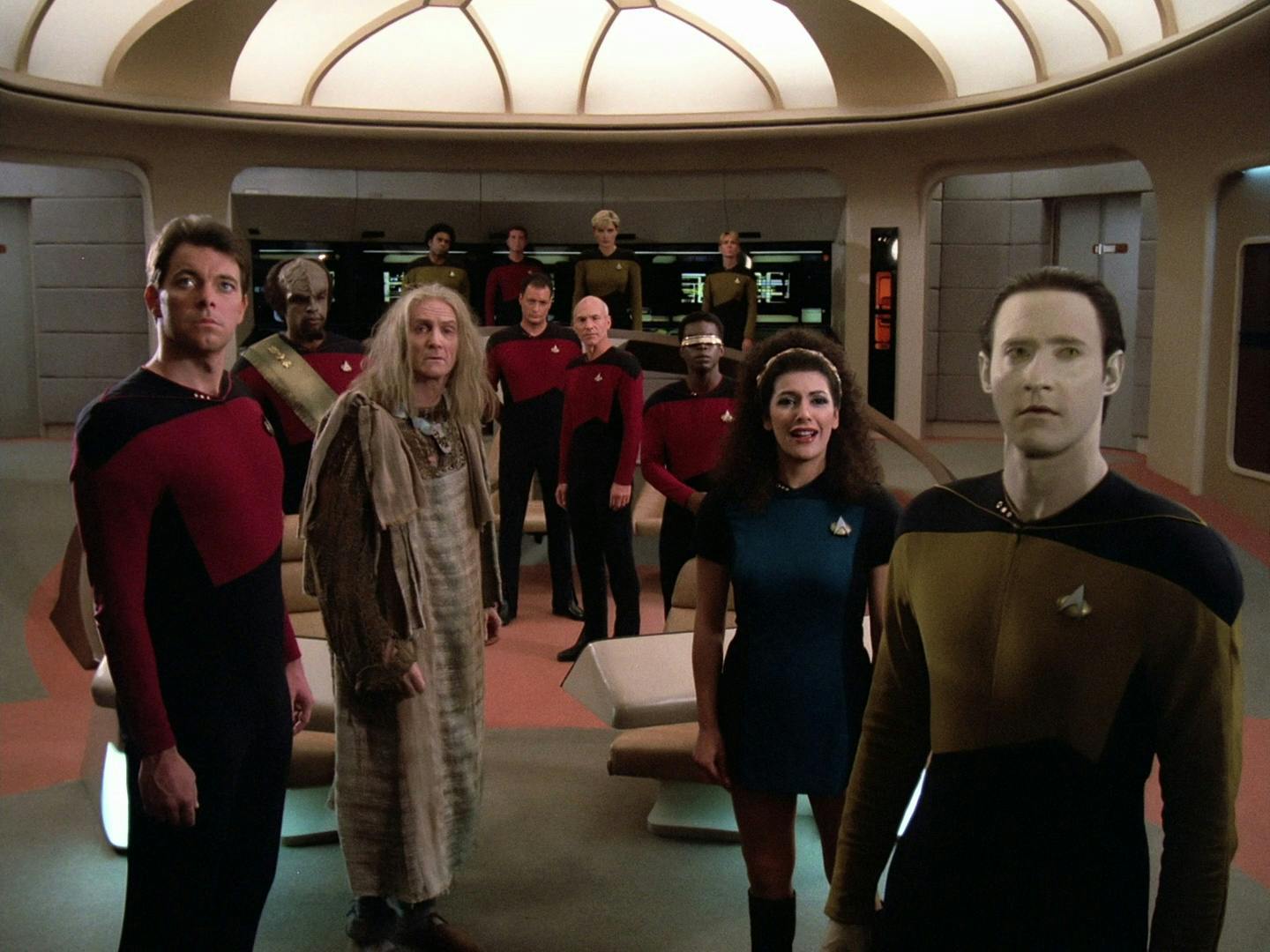
"Encounter at Farpoint"
StarTrek.com
DENNIS MCCARTHY (Composer): Rick Berman brought me on board. What happened was I started off with Glen Campbell. I spent nine years on the road with him. It was the college of the road, working with all the orchestras and bands, and asking guys, “How’s my arrangement?” They’d say, “Oh, it’s great.” And I’d say, “No, really?” They’d say, “Oh, it sucks.” Then they’d tell me why. That’s how I learned. It was trial by fire.
Then, in 1981, I got a call from Dick Harris at Warner Brothers saying they had a spinoff of Dukes of Hazzard [Enos]. They wanted to have the country stuff, which, of course, I knew from Glen and all the guys I’d been working with, but also I knew orchestrals, being able to write for brass and so forth. So I could do a combination for Enos. I came back and did that. Then, a while later, I got a call about V: The Final Battle, one of the V miniseries. I had nine days to replace probably 60 percent of the score that was in there, because they wanted it to be more orchestral and bigger than what it was. I had over an hour’s worth of music for 60 musicians and I had nine days until air, to get this done. So it was quite a lot fun, but no sleep. Then I did the new Twilight Zone.
And what happened was that Rick Berman heard about the V thing and discovered that I could work at high speed, because that’s what Star Trek always was, and they called me into the office. They said, “OK, can you give us Jerry Goldsmith’s wonderful theme combined with Alexander Courage’s fanfare?” I went and did that, gluing everything together. That was kind of the beginning of synthesizers. So I did sort of a mock-up, got the show and just went for 18 straight years after that. I did, I don’t know, 360-something total shows. I did the TNG pilot and the Enterprise finale. So I rode that train for a long, long time.
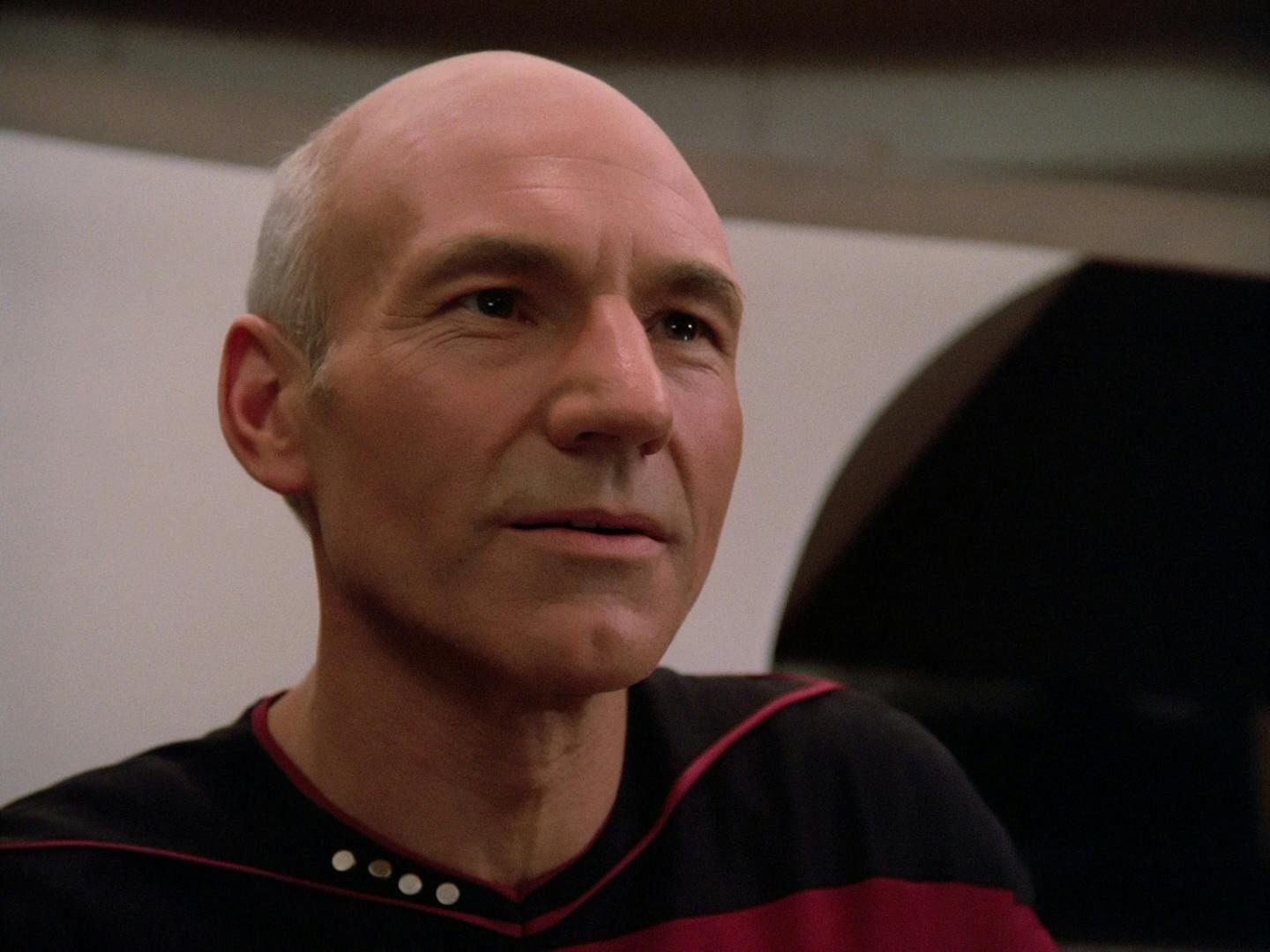
"Encounter at Farpoint"
StarTrek.com
